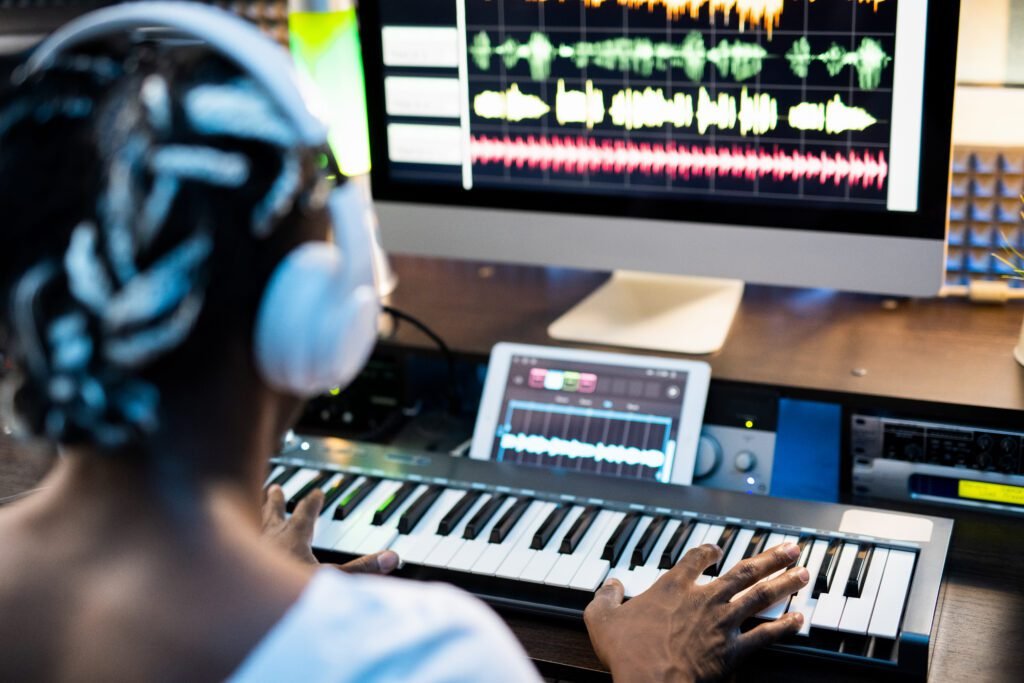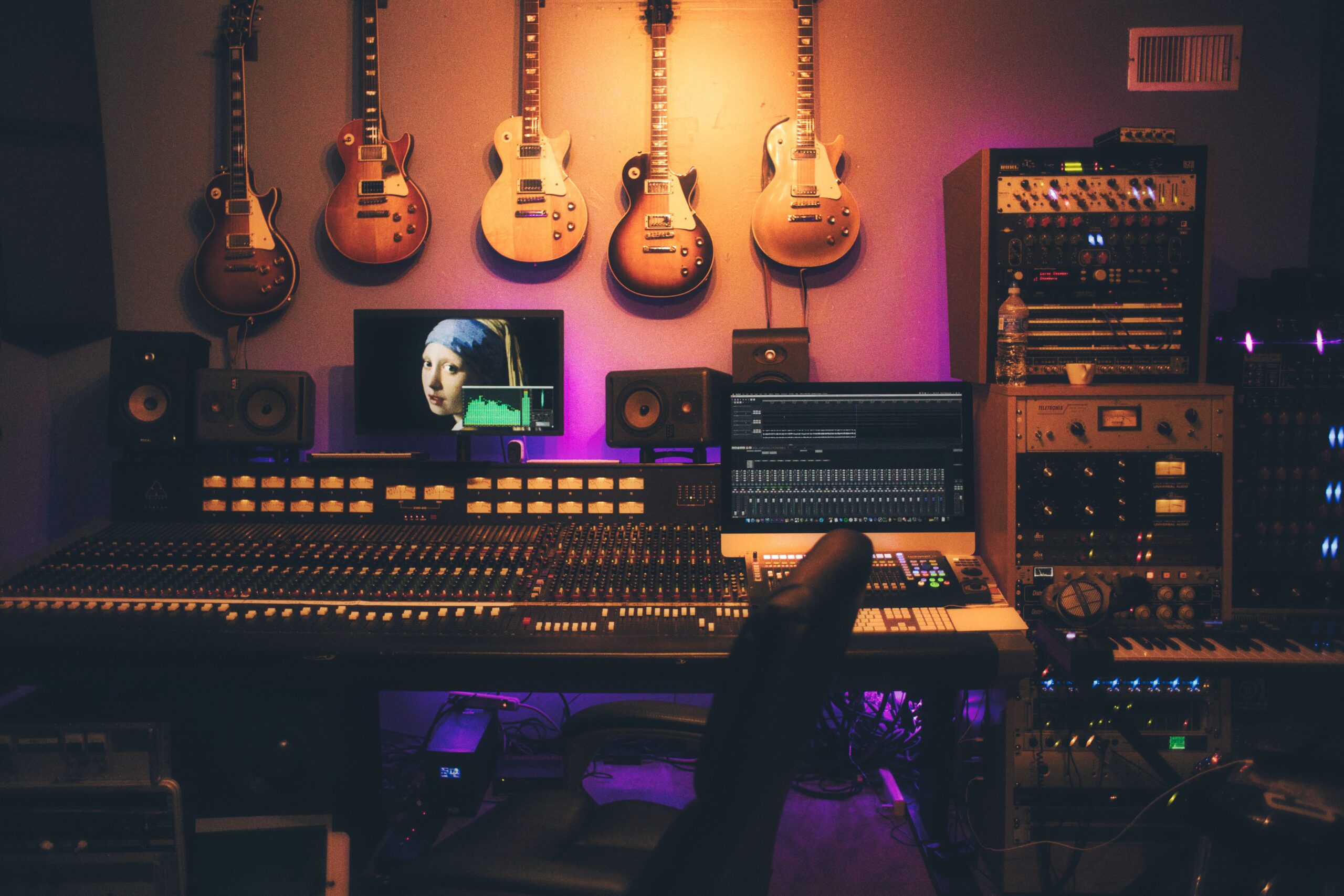Music production has come a long way over the years, and with advancements in technology, it continues to evolve. One of the most exciting developments in recent years is the integration of artificial intelligence (AI) into the music production process. This groundbreaking technology has the potential to revolutionize the way music is composed, produced, and even consumed.

Understanding the Sweeping Impact of AI Technology on the Music Industry
AI technology has already made its mark in various industries, and the music industry is no exception. With AI algorithms and machine learning capabilities, musicians and producers can now tap into a vast array of tools and resources to enhance their creative process.
One of the key areas where AI is making waves in music production is in composition. AI-powered algorithms can analyze vast amounts of musical data, learning patterns and trends to generate original compositions. This opens up a world of possibilities for musicians, as AI can help them explore new melodies, chord progressions, and harmonies that they may not have discovered on their own.
Furthermore, AI technology is also being used in production music, where it can assist in creating high-quality tracks quickly and efficiently. By analyzing existing music libraries, AI algorithms can generate new tracks that align with specific moods, genres, or even target audiences. This not only saves time for composers but also provides a wider range of options for music supervisors and content creators.
Another trend is the use of AI for mastering and mixing. Platforms like LANDR and AIVA use intelligent algorithms to analyze and optimize the sound quality of a track, automating a process that traditionally required a skilled audio engineer. This not only speeds up the production process but also makes it more accessible to amateur musicians and producers.
AI is also being used to personalize music recommendations. Streaming services like Spotify and Apple Music use machine learning to analyze a user’s listening habits and suggest songs or artists they might like. This technology is becoming increasingly sophisticated, with some platforms even able to suggest music based on a user’s mood or activity.
While some may argue that AI technology takes away the human touch and creativity from music production, it is important to note that AI is a tool that can enhance the creative process rather than replace it. Musicians and producers can still infuse their unique style and emotions into their compositions, while leveraging AI to streamline and augment their workflow.
AI-Generated Music: Legal and Copyright Considerations
One of the primary ethical considerations when using AI in music production is the question of authorship and ownership. As AI systems generate music, it becomes unclear who the ‘author’ of the music is. Is it the programmer who created the AI, the AI itself, or the user who inputs the data? This raises complex questions about copyright and intellectual property rights.
Another ethical concern is the potential for AI to replace human musicians and producers. As AI technology becomes more sophisticated, there’s a fear that it could lead to job losses in the music industry. This not only affects individual livelihoods, but could also have wider cultural implications if human creativity and spontaneity are devalued.
AI in music production also raises concerns about homogenization of music. If AI systems are trained on popular music, they may tend to generate music that sounds similar, potentially leading to a lack of diversity and innovation in the music landscape.
Making Music with Machines: The AI Instruments of Tomorrow
Picture this—you’re in your home studio. Rather than reaching out for your traditional instruments, you start an application—a sophisticated, modern, and cutting-edge tool that employs artificial intelligence. With just a few clicks and voila! Unique beats, rich harmonies, and intricate melodies pour out from your speakers. The age of AI instruments is here, and as a music creator, you are at the forefront.
One of the profound benefits of these AI instruments lies in their ability to break down barriers. Even without prior musical training, you can produce high-quality, polished compositions. It’s all about imparting your creativity into the software.
AI instruments also open up an entirely new world of sonic possibilities. By learning and mimicking a broad spectrum of sounds—from traditional instruments to natural soundscapes, and even synthesized sounds—the range of auditory palettes at your disposal becomes virtually unlimited. In the future, we could see entire tracks composed by AI, tailored to a listener’s mood or preferences.
Not only do AI instruments have a potential impact on the creation of new music, but they may also revolutionize remixing and sampling. Through intelligent sound recognition, AI could identify individual components within a track, offering producers unprecedented control over their samples.
However, as with any game-changing technology, it’s important to treat AI’s integration into music production with caution. As AI instruments get more complex and intelligent, we must ensure they are used as enhancers of human creativity, not replacements. There’s a place for technology in music, but it should not entirely replace the organic, human element that gives music its soul.
In conclusion, the future of music production is undoubtedly intertwined with AI technology. As AI continues to advance, we can expect to see even more innovative applications in music creation, production, and consumption. Embracing this technology can open up new avenues for musicians, enabling them to push the boundaries of their creativity and deliver captivating music to the world.

